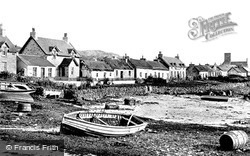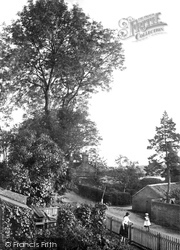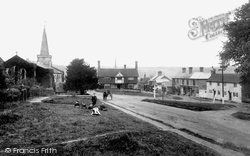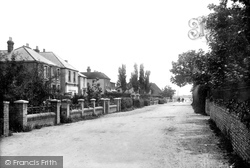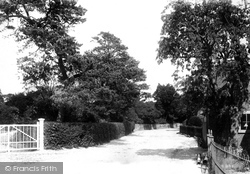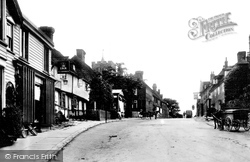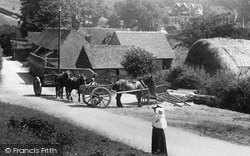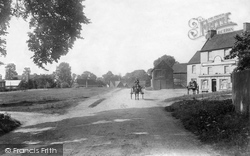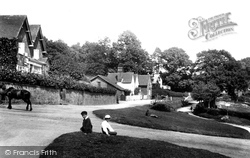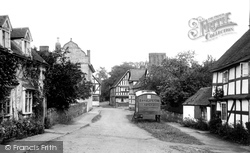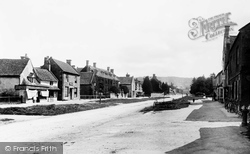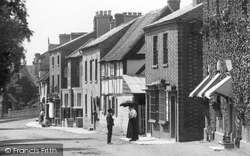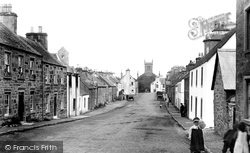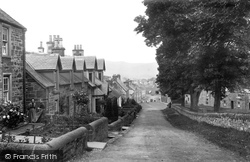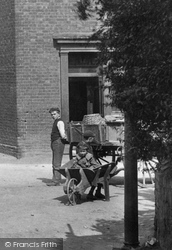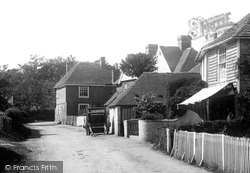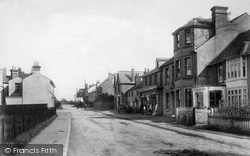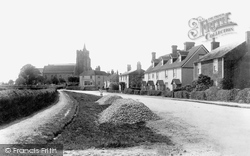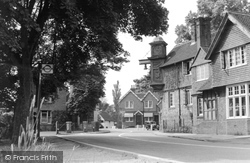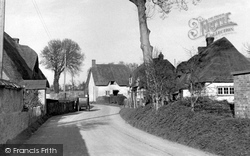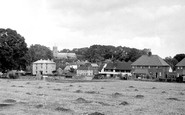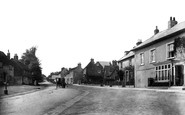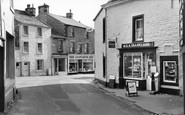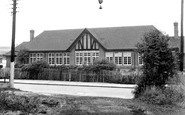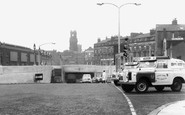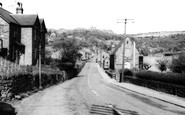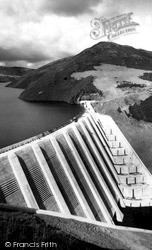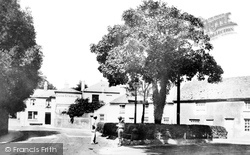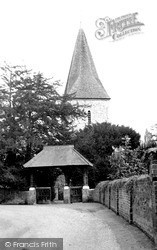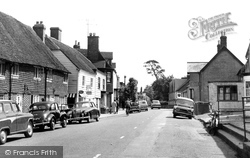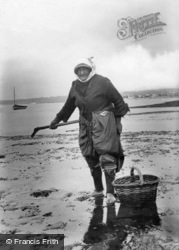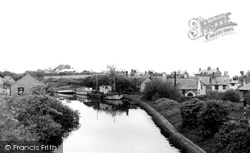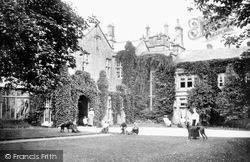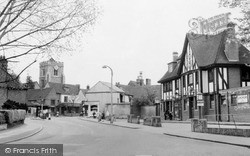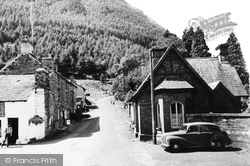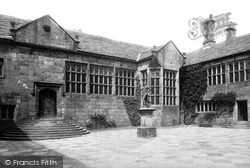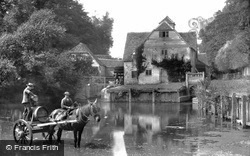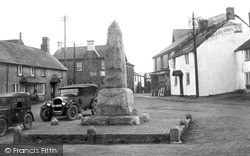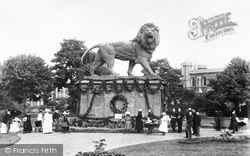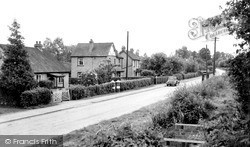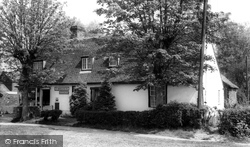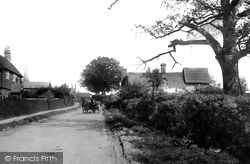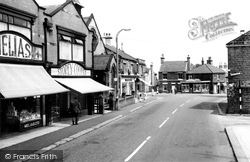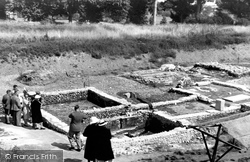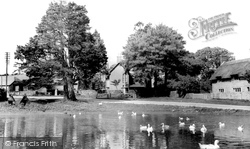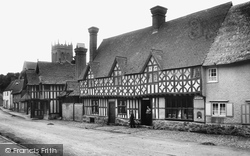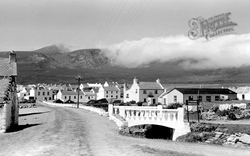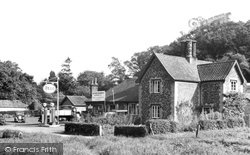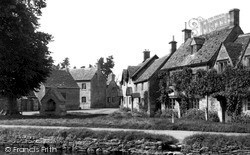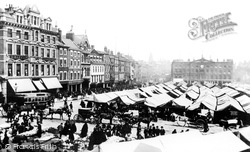Places
5 places found.
Those places high-lighted have photos. All locations may have maps, books and memories.
Photos
9,649 photos found. Showing results 2,561 to 2,580.
Maps
18 maps found.
Books
13 books found. Showing results 3,073 to 13.
Memories
4,612 memories found. Showing results 1,281 to 1,290.
Memories
My family were evacuated during the second world war from East London , they were put into some cottages in the village, my mum died in 2002 and her sisters have died since then, apart from one who is in her eighties. I can ...Read more
A memory of South Petherton in 1942 by
Village Bobby
As village 'Bobby' in the late 1960's early 70's, we, my wife and two daughters, lived in the Police House in Furnace Lane. Sometime about 1970 I called into the village shop (I think it was Fuller's) and the lady there asked me ...Read more
A memory of Lamberhurst in 1970 by
The Eight Bells
I have very happy memories of Hazel and I looking after the Eight Bells for Jack and Sylvia when they went on holiday. This was for a few years in the late 60's and early 70's. Most sadly, my lovely wife Hazel, 'nee' Cook, died ...Read more
A memory of Kelsale in 1968 by
Place Farm
I was born in Redhill at Earls Wood Hospital in February 1944. I lived at Place Farm until 1955. I remember all the celebrations for the coronation of Elizabeth 2nd as we watch a black and white TV. The entire village celebrated ...Read more
A memory of Bletchingley in 1944 by
Wartime And Later
My mum and I were evacuated to Ingleton during WWII from Wallasey in the Wirral, after we had been bombed out. We lived at 129 New Village and when we went back to Wallasey after the end of the war, my Grandparents, Mr and Mrs ...Read more
A memory of Ingleton by
Laindon School
I was 14 years old and I worked for Matthew & Sons Corn Merchants of Brentwood. My job was to go round the local villages with a horse and cart selling our produce to the local people, which mainly consisted of chocolate ...Read more
A memory of Laindon in 1940 by
Queens And Kingsland Dance Halls
What happy memories I recall of my early dancing days, learning to jive at the Queens Kingsland and New Brighton Tower. I went a lot with my older brother Cliffy Keogh, there were live bands then and only stayed ...Read more
A memory of Birkenhead in 1957 by
It Will Always Be Home By Julia Elwell Nee Walley
I was born in Knutsford in 1947 at 114 King Street (the Tatton cottages), and moved to Manor Park in 1951. I started at Egerton School (the old one on Silkmill Street) and then moved to ...Read more
A memory of Knutsford
Two Dales
Lived further down the road in the village, the semi-detached house on the left. The first was occupied by the Bowlers, newsagents, next door the Waterfall Bros. I helped at the farm to the right for a bit of pocket money. The ...Read more
A memory of Two Dales in 1960 by
Day Trips To Brecon
As a child growing up in the mining village of Cwmtwrch in the 1940's and 50's, I enjoyed the family day trips to the cathedral town of Brecon, especially in summer. The public bus would take us from Ystradgynlais to Brecon,a ...Read more
A memory of Brecon by
Captions
5,016 captions found. Showing results 3,073 to 3,096.
This reservoir was newly built when the picture was taken.
This Edwardian photograph somehow captures the feel of an English village; note the sign beneath the tree, which points towards Brighton and Shoreham.
The parish church of Clewer village, now part of Windsor, St Andrew’s retains its village character in its old traditional setting.
The picturesque village of Burwash was once a centre of the Wealden iron industry. Nearby stands Batemans, a 17th-century iron-master's house, the home of Rudyard Kipling for many years.
This old woman is 'scratting' (scratching) the sands for the dark-coloured Devon cockles.
Hest Bank was the seaward side of the village, right at the southern side of the mouth of the River Kent. At one time, the area was referred to as Slyne with Hest.
Heysham Tower was built by T J Knowles in about 1837, and it was the home of the Cawthra family.
There is perhaps a brighter face to the village centre today than is apparent in the photograph, although the traffic problem is ghastly.
The recently afforested mountains near Dinas changed the landscape for a generation.
King James I beggared the Hoghtons by overstaying on a visit with all his retainers.
Apart from a lean-to added to the front, the building is remarkably unchanged; a lane leads into the superb village with its great Elizabethan mansion.
This hilltop village, at the head of the Coombe Valley, sits astride the main road between Bude and Barnstaple. It was once the Pilgrim's route to St Michael's Mount.
Many years before Wargrave grew in popularity as a riverside village, Edith, wife of Edward the Confessor, held the manor, and at that time it was known as ‘Weregrave’.
During the latter half of the 20th century, villages such as Tibberton became favoured places to live for people working in neighbouring cities. New buildings appeared for commuting residents.
In a small village, the post office and general store was always important. This one states boldly that telegrams could be dispatched. A letterbox is set in the wall.
Here we see Hever prior to Lord Astor's creation of a Tudor-style village adjacent to the castle. A horse-drawn wagon comes down the lane, and to the left is the spire of St Peter's Church.
Hoyland, properly Hoyland Nether, is a large former coal mining village between Sheffield and Barnsley.
Little can be usefully gleaned from the remains shown here, but it is known that Dorchester was a centre for a school of mosaicists in the 3rd and 4th centuries.
Ashmore is a village of Cranborne Chase, with a splendid setting and a large pond that attracts a variety of birdlife.
A small village just south of Devizes, Potterne still has some famous and wonderfully ancient buildings. It was once a manor of the Bishop of Salisbury.
This magnificent view shows a typical Achill scene, clouds hanging over Croaghaun, whilst the limewashed cottages huddle together in this remote Irish-speaking village.
The tiny village of Garboldisham on the Norfolk / Suffolk border has many houses made of the knapped flint which is so characteristic of the area.
Water weaves its magic through the fabric of this little village, and the fountain on the Green makes a focal point in the perfect picture; its design echoes the steeply pitched and gabled
On market day the whole square was full of activity and people came into Nottingham from all the surrounding villages.
Places (5)
Photos (9649)
Memories (4612)
Books (13)
Maps (18)


